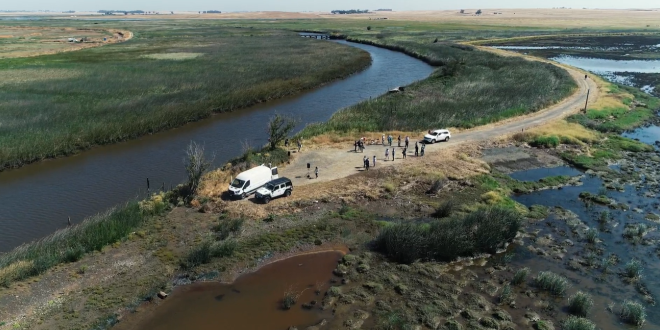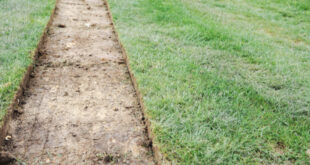State, federal, and local agencies gathered last week to celebrate two tidal habitat restoration projects in Solano County that support the survival of Delta smelt and other fish species as part of the long-term operation of the State Water Project.
Bradmoor Island and Arnold Slough, two neighboring projects in the Suisun Marsh, are designed to provide high-quality habitat and food sources for fish in the Sacramento-San Joaquin Delta. The event celebrated the completed Arnold Slough project and the start of construction at Bradmoor Island.
“As drought and climate change continue to stress California’s natural systems, these projects to support native fisheries become even more vital. We are excited that they also add new recreational opportunities for Californians to enjoy the beauty and bounty of the California Delta,” said DWR Director Karla Nemeth.
Construction at Arnold Slough concluded in the fall of 2021 and restored approximately 161 acres of managed wetland into a tidal wetland. Construction work included infrastructure demolition, three levee breaches, filling ditches to marsh plain elevation, and grading down exterior levee segments to allow overtopping at high tides. The work done at Arnold Slough also provides for climate change resilience by accommodating sea level rise.
Bradmoor Island is a larger project that will restore approximately 490 acres of managed wetland into a tidal marsh while also providing new recreation opportunities for the public. Prior to starting construction, actions were taken to control invasive species to prepare the site for restoration. Construction at Bradmoor Island is expected to begin this month and includes demolition of infrastructure and buildings, and excavation of five levee breaches to restore tidal flow to the site.
Bradmoor Island and Arnold Slough are two of many projects that the State is implementing to support fish species and restore critically needed habitat in the Delta as part of EcoRestore. Recently, DWR broke ground on the Fremont Weir Big Notch Project, which will restore 30,000 acres into floodplain salmon rearing habit in the Yolo Bypass. The following week, the groundbreaking of Lookout Slough was celebrated, which will create habitat and produce food for Delta Smelt and other fish species while also creating new flood capacity in the Yolo Bypass.
Beyond the benefits to fish, habitat, and adaptation to climate change, there will also be recreational opportunities at the Bradmoor Island location. Once construction is completed, there will be increased public access to the site through creation of new waterways for fishing, boating, hunting, kayaking, and other public uses.
Both projects also advance restoration efforts outlined in the Suisun Marsh Habitat Management, Preservation, and Restoration Plan, which is a 30-year plan intended to balance the benefits of tidal wetland restoration and managed wetland enhancements to preserve the unique and important ecosystem of the Suisun Marsh. The restoration work being done through the Bradmoor Island and Arnold Slough projects contribute towards the plan’s restoration goal of 5,000 to 7,000 acres.
The Delta is the hub of California’s two largest surface water delivery projects, the State Water Project and the federal Central Valley Project. The Delta provides a portion of the drinking water for 27 million Californians and irrigation water for large portions of the state’s $50 billion agricultural industry. Covering more than 738,000 acres in five counties, the Delta is home to more than a half-million residents.
 California Water News Daily Your Source For Water News in California
California Water News Daily Your Source For Water News in California


